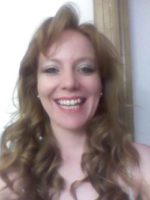I recently had the pleasure of speaking with Richard Adin, Founder and CEO of Freelance Editorial Services and of the “An American Editor” blog. What follows is our discussion of his journey to become an editor, his experience in the industry, and his advice on a number of topics.
Rebecca Henderson: When did your relationship with professional editing begin?
Richard Adin: I began my career as an editor in 1984 when I was hired as executive editor with a legal book publisher. Shortly after I began my work with the publisher, I realized that it could be a learning step toward starting my own business; eventually, Freelance Editorial Services became my full-time business.
Henderson: What prompted your career switch from lawyer to professional editor?
Adin Actually, I have had many careers in the course of my life. I worked as a short-order cook, a bridge toll-collector, a shoe salesperson, on a road crew clearing brush, a social worker, a welfare frauds investigator, on an assembly line, as a marketing executive, as a bank officer, a used car salesperson, a job placement counselor, a law clerk, a lawyer, and an editor.
I had difficulty finding a profession that I wanted to make a permanent profession. The combination of excellent pay, benefits, and a lot of time off, convinced me to leave the world of lawyering for the world of editing.
Alas, I was not really cut out for the corporate world. However, I found that I enjoyed editorial work. Consequently, I started focusing more on building my own business and ultimately left someone else’s corporate world to become a full-time freelance editor in my own business.
Henderson: What do you enjoy most about professional editing?
Adin: The thing I enjoy most is the challenge of providing high-quality editing within a relatively short time-frame and doing so profitably.
I enjoy the challenge of deciding whether the words the author chose convey the author’s message; if they do not clearly do so, the challenge is offering an alternative. Words matter. The right word but in the wrong context can lead to, at worst, disaster, at best, misunderstanding.
Copy-editing is a never-ceasing challenge to provide the best edit one can within a relatively short time-frame. Copy-editors have to figure out how to serve both interests—and to do so profitably. Over the years that has been a major challenge.
Henderson: What advice would you give writers who are looking for editors to help them in their publishing journey?
Adin: First, shed the thin skin and develop thicker skin. Remember that everyone has the same goal—to make your book the absolute best it can be. Inevitably, there will be disagreements, but deal with them at arm’s length like a professional.
Second, choose a professional editor, someone who does this for a living and not as a side job. The professional editor has experience, knowledge, and the specialized skill set necessary to make your book better. Remember that editing is much more than catching a spelling error.
Third, choose a professional editor because a professional editor always remembers that it is your book and you make the final decision, no matter how right or wrong your decision may be.
Fourth, be prepared to work with a professional editor. Give the editor the information the editor needs before you are asked for it. Here’s a good place to start: “The Business of Editing: What an Author Should Give an Editor”. Also make an effort to learn what it is you want the editor to do. Make sure when you say you want proofreading, you understand what proofreading is; otherwise you and the editor will be talking past each other. A good place to start is my essay, “Editor, Editor, Everywhere an Editor”. Finally, understand how an editor evaluates your manuscript. Ask the editor to explain it. To illustrate, “The Business of Editing: Evaluating a Manuscript” describes how I evaluate a manuscript.
Fifth, read carefully my essay, “When Authors Look for Editors”. This essay has a lot of good information for authors looking for editors.
Finally, hire a professional editor, not your child’s English teacher or your next-door neighbor who thinks spotting some spelling errors in the latest bestseller qualifies them to be an editor. Editing is like other professions—it requires education and experience, not just putting out a shingle that says “Herein Lives an Editor for Hire.”
Henderson: What makes someone a successful/unsuccessful freelance editor?
Adin: Lots of things separate the successful from the unsuccessful freelance editor but the most important is this: successful editors run their editing business as a business. Unsuccessful freelancers view themselves as more of an artisan than a businessperson. The business aspects cannot be ignored in hope that everything will work out (see my book: The Business of Editing: Effective and Efficient Ways to Think, Work, and Prosper).
Henderson: What role does your blog play in comparison to your Freelance Editorial Services business?
Adin: My blog, An American Editor, plays no role in my business. I started the blog seven years ago to pass on knowledge that I had gained over the years. I got tired of seeing the same questions with the same wrong advice on the various editing forums.
Henderson: What, in your opinion, is the future of editing?
Adin: Editing needs to become more like other certifiable professions with national standards, a governing body, and a disciplinary body—in other words, editing must become more professional so that authors and publishers can easily distinguish between a professional and nonprofessional editor. In addition, there needs to be a standardized professional education career path and continuing education.
Henderson: What advice would you give those wanting to pursue a career in professional editing? Do you recommend any programs, materials, resources, etc.?
Adin: I have always thought that the best education for the editing profession is to study philosophy and critical thinking. Philosophy, when done right, teaches you to think and how to think. This ability is critical for editing and can separate an average editor from the great editor. Studying English, writing, and literature is okay but is not preparatory for an editing career.
The other important course path is business. Editors run their own businesses. To make the business succeed, they need to understand business fundamentals.
For those interested in an in-depth look at the editing process, see the multi-part essay series, “The Business of Editing: The AAE Copyediting Roadmap.”
Henderson: What is your greatest accomplishment, in terms of professional editing, thus far?
Adin: That my reputation as an editor is such that I am sought after and have more work offered than I can take on—even working full-time. Probably the nicest thing that happens is when clients are willing to alter their production schedules to accommodate my needs.
Henderson: Do you have any other words of wisdom you’d like to share?
Adin: A professional editor is both competent and ethical. One cannot be a professional editor without both. A successful editor is a professional editor who also has learned how to run a business and thinks of editing as both a business and a profession. Success, no matter how defined, cannot come about absent professionalism, competence, and thinking like a businessperson.
 Rebecca Henderson holds a Master’s in German and a Bachelor’s in Creative Writing. Best expressing herself through the written word, she enjoys the smell of burning rubber and can recite the ABC’s of the automotive world upon command. Rebecca hopes to shift your world perspective through her words, because looking out the same window every day hardly makes for an interesting life.
Rebecca Henderson holds a Master’s in German and a Bachelor’s in Creative Writing. Best expressing herself through the written word, she enjoys the smell of burning rubber and can recite the ABC’s of the automotive world upon command. Rebecca hopes to shift your world perspective through her words, because looking out the same window every day hardly makes for an interesting life.


0 comments on “An Interview with Richard Adin of “An American Editor””